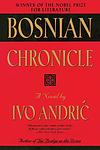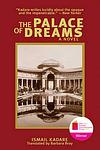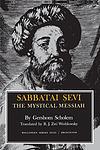The Greatest "Ottoman Empire" Books of All Time
Click to learn how this list is calculated.
This list represents a comprehensive and trusted collection of the greatest books. Developed through a specialized algorithm, it brings together 291 'best of' book lists to form a definitive guide to the world's most acclaimed books. For those interested in how these books are chosen, additional details can be found on the rankings page.
Genres
The "Ottoman Empire" category for books encompasses a wide array of literature focused on the history, culture, politics, and society of the Ottoman Empire, which was one of the most powerful and enduring empires in world history, lasting from the late 13th century until the early 20th century. This genre includes historical accounts, biographies of significant figures, scholarly analyses, and cultural studies that explore the empire's vast geographical reach from Southeast Europe across the Middle East to North Africa. It delves into the complex dynamics of the empire's administration, military conquests, economic practices, religious tolerance, and artistic achievements. Additionally, this category may feature novels and stories set during the Ottoman period, providing a narrative lens through which readers can experience the empire's rich tapestry of life. The books in this category serve to illuminate the legacy of the Ottoman Empire and its profound influence on the course of world history, as well as its impact on the modern nations that emerged from its territories.
Countries
Date Range
Reading Statistics
Click the button below to see how many of these books you've read!
Download
If you're interested in downloading this list as a CSV file for use in a spreadsheet application, you can easily do so by clicking the button below. Please note that to ensure a manageable file size and faster download, the CSV will include details for only the first 500 books.
Download-
1. The Forty Days Of Musa Dagh by Franz Werfel
This novel is a gripping historical fiction that recounts the harrowing tale of Armenian villagers who resist their deportation by the Ottoman Empire during the Armenian Genocide of 1915. Centered around the heroic stand of the people of Musa Dagh, the narrative delves into the struggle for survival, unity, and defiance against overwhelming odds. Through the lens of this resistance, the book explores themes of identity, resilience, and the human spirit's capacity to fight for freedom and justice. It serves as a poignant reminder of a dark chapter in history, highlighting the courage and determination of those who fought against their oppressors.
-
2. Bosnian Chronicle by Ivo Andrić
"Bosnian Chronicle" is a historical novel set in the Bosnian town of Travnik during the Napoleonic Wars. The narrative focuses on the experiences of various diplomats and their families living in Travnik, providing a detailed and vivid depiction of life in Bosnia under Ottoman rule. The story is filled with political intrigue, cultural clashes, and personal dramas, reflecting the tensions and complexities of the period. Through its richly drawn characters and intricate plot, the book offers a profound exploration of history, identity, and the human condition.
-
3. Death and the Dervish by Meša Selimović
In "Death and the Dervish", the protagonist is a dervish in the 18th century Ottoman Empire, who embarks on a mission to find his imprisoned brother. As he navigates through the complex and corrupt bureaucracy, he grapples with questions of morality, justice, and the nature of power. The story explores themes of existentialism and the struggle for meaning in a world marked by suffering and injustice.
-
4. Dervish And The Death by Meša Selimović
"Dervish and the Death" is a thought-provoking novel that delves into the complex themes of identity, morality, and the human condition. Set in the 18th century Ottoman Empire, the story follows a dervish, Sheikh Nuruddin, as he navigates the turbulent world of politics, power, and religion. Through his encounters with various characters, including the enigmatic Death, the dervish grapples with his own beliefs and questions the nature of existence. Selimovic's masterful storytelling and introspective prose make this novel a captivating exploration of life's fundamental questions.
-
5. Armenian Atrocities: The Murder of a Nation by Arnold Toynbee
This book provides a comprehensive historical account of the Armenian genocide that took place during World War I. The author meticulously documents the systematic extermination of the Armenian people by the Ottoman Empire, using a variety of sources including eyewitness accounts, diplomatic reports, and official documents. The book also explores the international response to the genocide and the subsequent denial and cover-up by the Turkish government.
-
6. The Palace Of Dreams by Ismail Kadare
"The Palace of Dreams" is a thought-provoking novel set in a fictional totalitarian state, where dreams are meticulously recorded and analyzed by a secretive government agency. Mark-Alem, a young clerk, finds himself entangled in the intricate web of the Palace of Dreams, as he is assigned to interpret dreams that could potentially influence the fate of the nation. As he navigates through a world filled with political intrigue and personal dilemmas, Mark-Alem is forced to question the nature of reality, the power of dreams, and the consequences of suppressing individuality in the pursuit of control.
-
7. Sabbatai Sevi by Gershom Scholem
"Sabbatai Sevi: The Mystical Messiah" is a comprehensive historical study of Sabbatai Sevi, a 17th-century rabbi who proclaimed himself the Jewish Messiah and led a mass messianic movement that spread across the Jewish diaspora. The book delves into Sevi's life, his messianic claims, and the fervent support he garnered, as well as his eventual conversion to Islam under threat of death by the Ottoman Sultan. This scholarly work examines the theological, social, and psychological aspects of this movement and its long-lasting impact on Jewish communities, providing a deep analysis of the interplay between mysticism and societal norms of the time.
Reading Statistics
Click the button below to see how many of these books you've read!
Download
If you're interested in downloading this list as a CSV file for use in a spreadsheet application, you can easily do so by clicking the button below. Please note that to ensure a manageable file size and faster download, the CSV will include details for only the first 500 books.
Download





